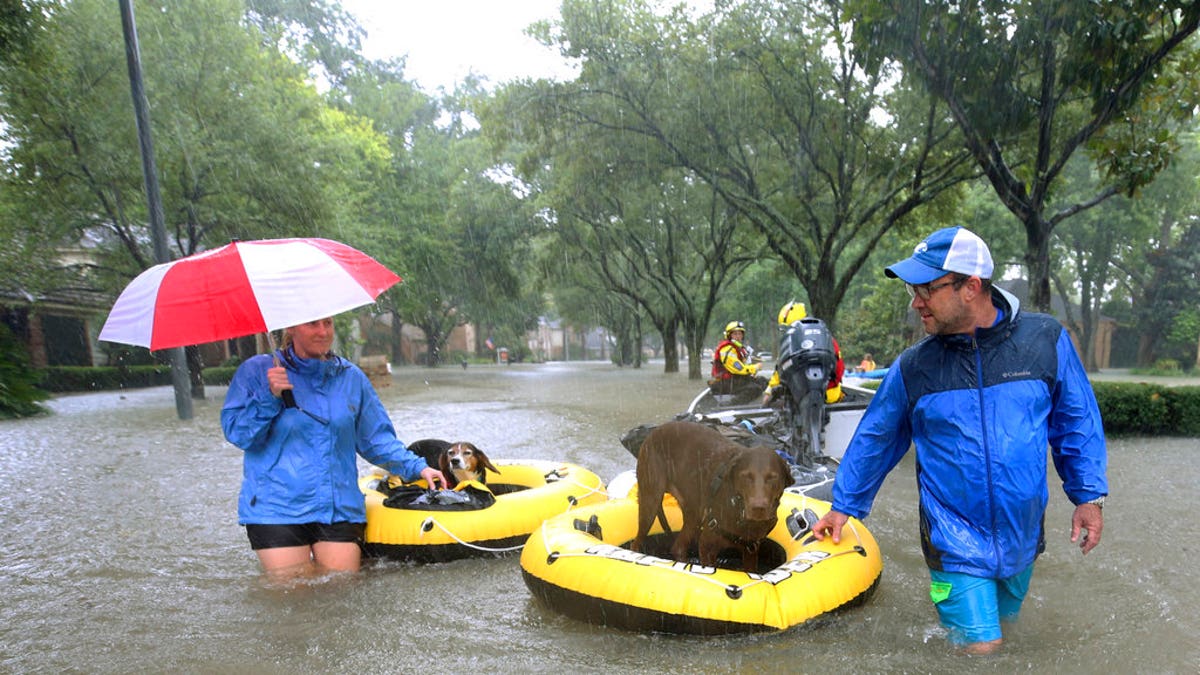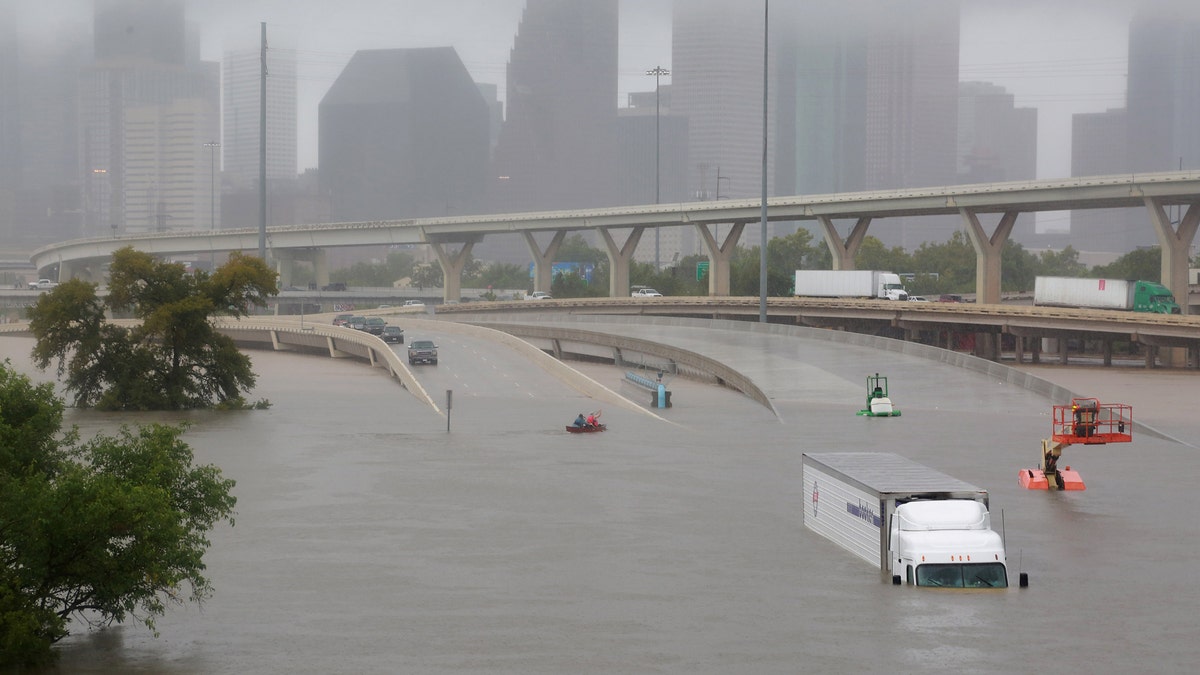When hurricanes like Harvey devastate so many lives, where is God?
That’s a really good question—one which I’ve heard whenever a hurricane, tornado, or tsunami wreaks havoc—and it deserves an honest, though maybe surprising answer.
It’s been said that tragedies bring out the best in people, and that certainly is the case in Houston. In addition—and here is my answer to the question posed above—tragedies bring out the imago in people, the biblical claim that humans are created in the image of God.

Residents and pets are evacuated from their homes as floodwaters from Tropical Storm Harvey rise, Monday, Aug. 28, 2017, in Houston. (Godofredo A. Vasquez/Houston Chronicle via AP) (AP)
We’ve all seen the stirring TV images of people helping others in Houston. What some fail to see is the reflections of God’s own character in these moving images.
Compassionate volunteers helped nursing home patients flee before the rising waters inundated their residences. Did the volunteers always act this compassionately in the past? Or did the enormity of the crisis bring their true design, based on God’s love, to the surface?
A rescue worker was neck-deep in rushing water, risking his own life to save another’s. And a flotilla of private boats—likened to those from Dunkirk—also rescued stranded residents. Could the impulse that sacrificing one’s life for others is worthy reflect a divine trait?

Interstate highway 45 is submerged from the effects of Hurricane Harvey seen during widespread flooding in Houston, Texas, U.S. August 27, 2017. REUTERS/Richard Carson TPX IMAGES OF THE DAY - RTX3DL7M (REUTERS)
A tow-truck driver named Fernando used his vehicle to rescue families because, in his words, “It’s the right thing to do.” In a world that assumes there are no objective rights and wrongs, tragedies recalibrate our moral compasses and remind us that some things are always right. Could doing the right thing be more than an instinct? Could it be an echo of the very nature of a righteous and moral God?
Families wept over the death of loved ones, just as Jesus wept near the tomb of his friend Lazarus. Could our tears and sorrows be reminders that death was not part of our original design, that we were created to be like God—immortal?
(Think about it: if atheistic materialism is true, don’t you think we would have become used to death in 3+ billion years of life on planet Earth? Wouldn’t we have settled the case that human deaths are par for the course and shouldn’t trouble us more than the death of a plant or pet?)
An ordinary man walking through a flooded street carried a woman, who also carried a baby. And a furniture store was converted into a temporary shelter. Could these be reminders not just of the value of helpfulness, but also gentle reminders of another protective man, a woman carrying a child, and the stable in which they were given temporary shelter?
So where was God during the hurricane in Houston?
God was mourning with those who mourned their loved ones’ deaths. God was inspiring the acts of compassion, the risks through rushing water, and the intuitions to choose the “right thing” in a world that prefers relativism. God was directing those who carried others to safety and the impulse of boaters to risk their own lives to rescue others. God was even in the humble act of storeowners to lend their space for temporary use. And God was doing all this through the power of his very nature, which is stamped in every human being.
God is not absent but is very, very subtle. He hides himself in plain sight, but can be found when we learn how to decipher the clues that point toward his presence. And the clues are abundant right now in Houston.








































